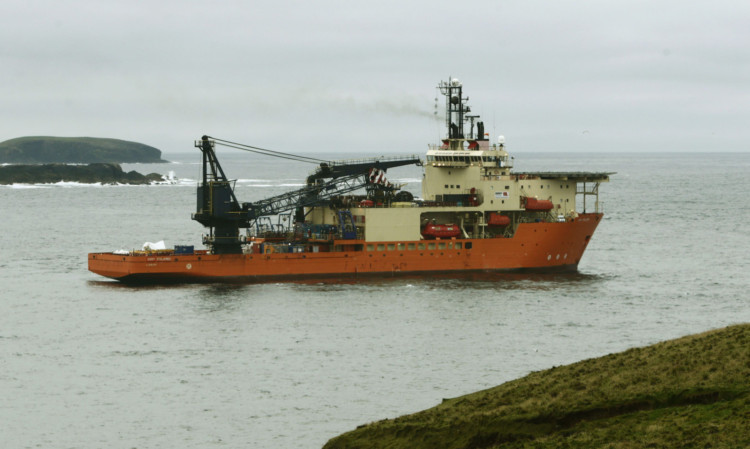A helicopter crash which killed four people will be “painstakingly investigated” to find out what went wrong, a senior executive of the aircraft operator has promised.
Duncan Trapp, vice-president for safety and quality at CHC Helicopter, said the company will work with authorities and give its full cooperation following the Super Puma crash in the North Sea on Friday night.
He also revealed the two pilots are recovering from their injuries and pledged to do “everything humanly possible” to ensure workers can travel safely.
“Our co-pilot is now recovering at home and our pilot is recovering in hospital,” Mr Trapp said. “He is in a stable and more comfortable condition today but has suffered back injuries.”
The victims were Duncan Munro, 46, from Bishop Auckland, County Durham; George Allison, 57, from Winchester, Hampshire; Sarah Darnley, 45, from Elgin, Moray and 59-year-old Gary McCrossan, from Inverness.
CHC grounded the model involved in the crash and suspended all UK flights of three other Super Puma types.
Fellow operators Bond Offshore Helicopters and Bristow also enforced a temporary suspension of all Super Puma flights except emergency rescue missions.
“Together, the regulators, authorities, aircraft manufacturer, CHC and other experts will painstakingly investigate the incident to determine and learn the lessons of what went wrong,” Mr Trapp said.
“The Air Accidents Investigation Branch (AAIB) will be reviewing information including debriefs with pilots and passengers, air traffic records, technical data and records and the aircraft and its on-board systems.”
There have been five North Sea incidents involving Super Pumas since 2009. In April that year an AS332 L2, operated by Bond, went down north-east of Peterhead on its return from a BP platform, killing all 14 passengers and two crew on board.
The other three ditchings involved the EC225 model which saw flights temporarily suspended. CHC returned the model to commercial service only earlier this month.
An investigation by the Air Accidents Investigation Branch found two of the incidents were the result of gearbox failure and new advice on checks for the EC225 were issued as a result.
The statement was released as key offshore industry operators and contractors met in Aberdeen to discuss contingency plans following the suspension of Super Puma flights to and from UK installations. The helicopters account for about half of the available seats used to transfer platform workers.
The meeting was called to consider the use of alternative helicopters, how to make better use of available flights and the possibility of transferring workers by boat to keep offshore production going.
